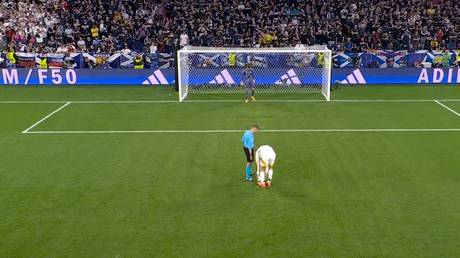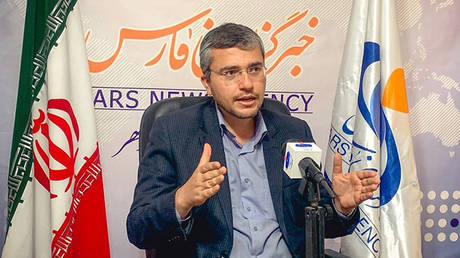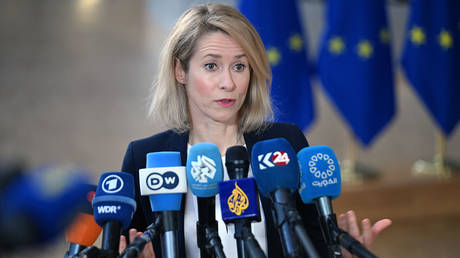
One banner bore the inscription ‘Belgorod’, a city often targeted by Ukrainian artillery attacks
Two Russian flags were displayed at the opening match of Euro 2024 between Germany and Scotland on Friday, according to footage from the stadium.
The German and Scottish national teams faced off at the Munich Football Arena on Friday, with the hosts winning 5-1. Euro 2024 is taking place between June 14 and July 14, with a total of 24 teams having qualified for the tournament. Russia was banned from UEFA and FIFA events in light of the Ukraine conflict.
Stadium rules do not explicitly ban Russian or other national flags, with restrictions applying only to materials with a “discriminatory, racist… or politically radical” message, or those that “glorify violence” or contain “political propaganda.” However, Russian flags are not welcome in some designated fan zones as part of the tournament.
For instance, Berlin authorities earlier signaled that only the national flags of countries participating in Euro 2024 would be allowed in certain areas, while asking attendees to “leave all other flags at home” and arguing that the championship is not the place for other types of demonstrations, according to the newspaper Berliner Morgenpost.
According to footage of Friday’s Germany versus Scotland match, at least two Russian flags made it into the arena. The tricolors can be seen near the end of the first half in the first row, when Germany’s Kai Havertz scored a penalty against Scotland. One of the flags bore the inscription “Belgorod,” the Russian city near the border with Ukraine that has regularly come under deadly artillery and drone strikes carried out by Kiev’s forces.
READ MORE: Ukrainian army recruiters ‘abduct’ pro footballer – club
While it is unclear exactly who brought the flags to the game and how they were unfurled, the Russian flag closely resembles the Serbian tricolor, which is allowed in all fan zones.
In May, Berlin police decided to ban Russian flags and other symbols associated with the country during Victory Day festivities commemorating the Soviet Union’s victory over Nazi Germany, citing the Ukraine conflict. The move outraged Moscow, which called it “discriminatory” and a violation of the principle of “historical reconciliation” between the two nations.




